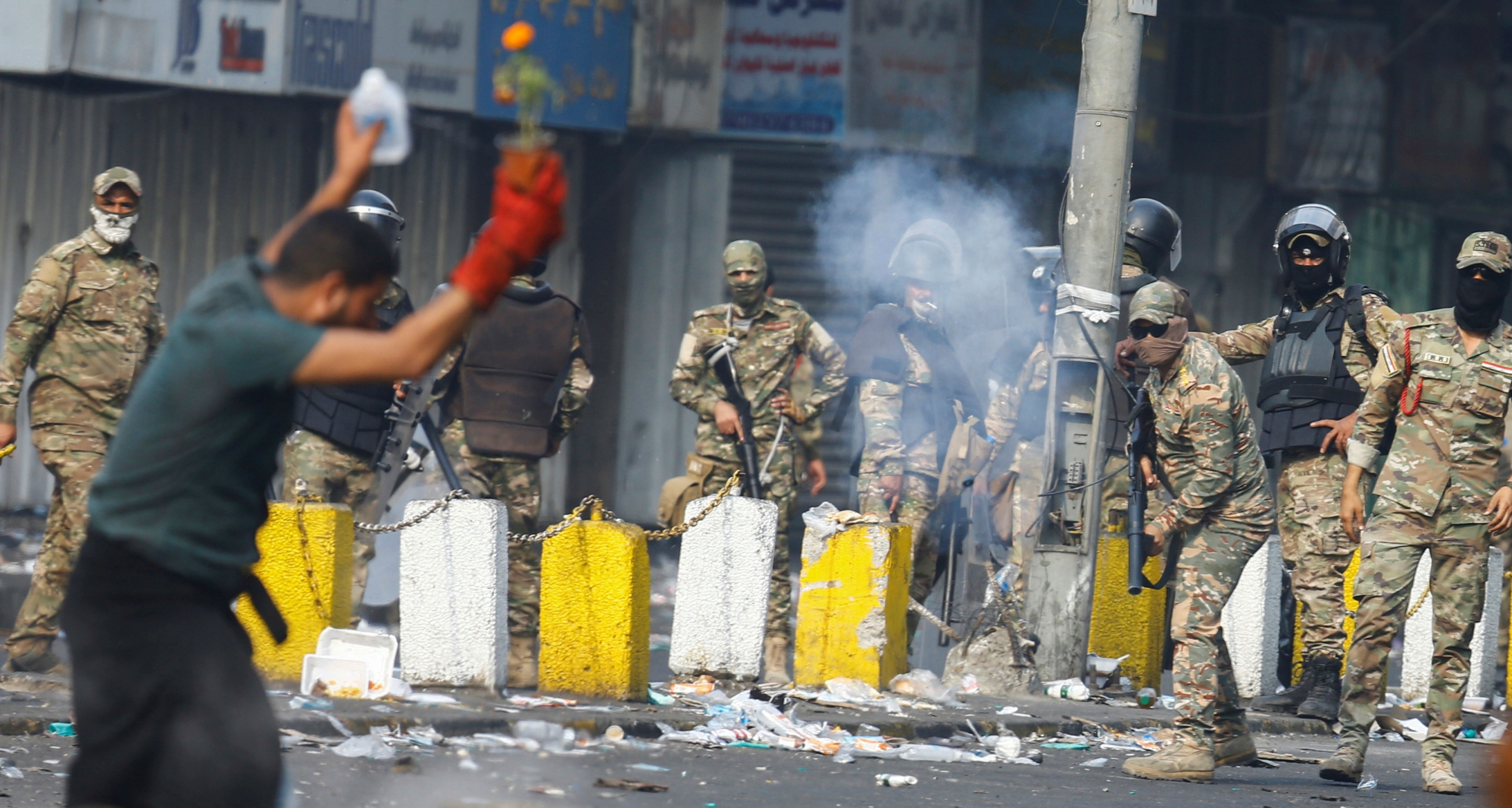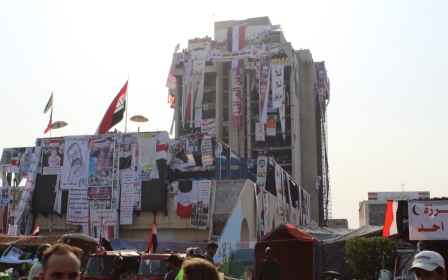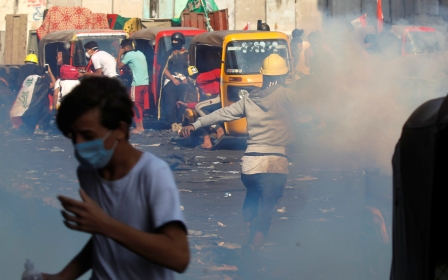Several dead as Iraq security forces fire tear gas canisters at protesters

Iraqi security forces killed at least four people on Thursday and wounded more than 50 as they tried to push protesters further back to their main camp in central Baghdad, police and medical sources said.
On Thursday morning, three protesters died after tear gas canisters directly struck them in the head and another died in hospital from wounds from a stun bomb fired by security forces, the sources said.
Security forces used live rounds, rubber bullets and fired tear gas canisters in a bid to disperse hundreds of protesters gathered near Tahrir Square, a cameraman for the Reuters news agency said.
At least half of the wounded protesters had injuries sustained from live ammunition, police and medical sources said.
The others were taken to hospital having choked on tear gas, or were struck by rubber bullets, the sources said.
The United Nations had already documented 16 deaths from the military-grade canisters, which are up to 10 times heavier than regular tear gas grenades and can pierce skulls or lungs.
Amnesty International found that demonstrators suffered "gruesome wounds and death after the grenades embed inside their heads".
Medical workers have also become "another victim of the state's excessive force", Human Rights Watch (HRW) said in a report.
The report highlighted multiple acts of violence against medics since the beginning of the demonstrations. At least one medic has been killed since 25 October.
"These attacks show an utter disregard for the overriding need to ensure medical workers can do their essential job," the human rights organisation said.
Local officials' houses set on fire
More than 300 people have been killed since the protests in Baghdad and the south of the country started in early October, driven by discontent over economic hardship and corruption.
Demonstrations were also taking place in several locations in southern Iraq.
Protesters late on Wednesday set fire to local officials' houses in the town of Gharraf, 25km north of the southern city of Nassiriya, security sources said.
Prime Minister Adel Abdul Mahdi's government has taken some measures to try to quell the unrest, including handouts to the poor and creating more job opportunities for college graduates.
But it has failed to keep up with the growing demands of demonstrators who are now calling for an overhaul of Iraq's sectarian political system and the departure of its entire ruling elite.
The unrest is among the biggest and most complex challenges to the Iraqi establishment since it took power after the US invasion and the toppling of Saddam Hussein in 2003.
Since defeating Islamic State in 2017, Iraq had enjoyed two years of comparative stability.
But despite its oil wealth, many people live in poverty with limited access to clean water, electricity, healthcare or education.
Middle East Eye delivers independent and unrivalled coverage and analysis of the Middle East, North Africa and beyond. To learn more about republishing this content and the associated fees, please fill out this form. More about MEE can be found here.





